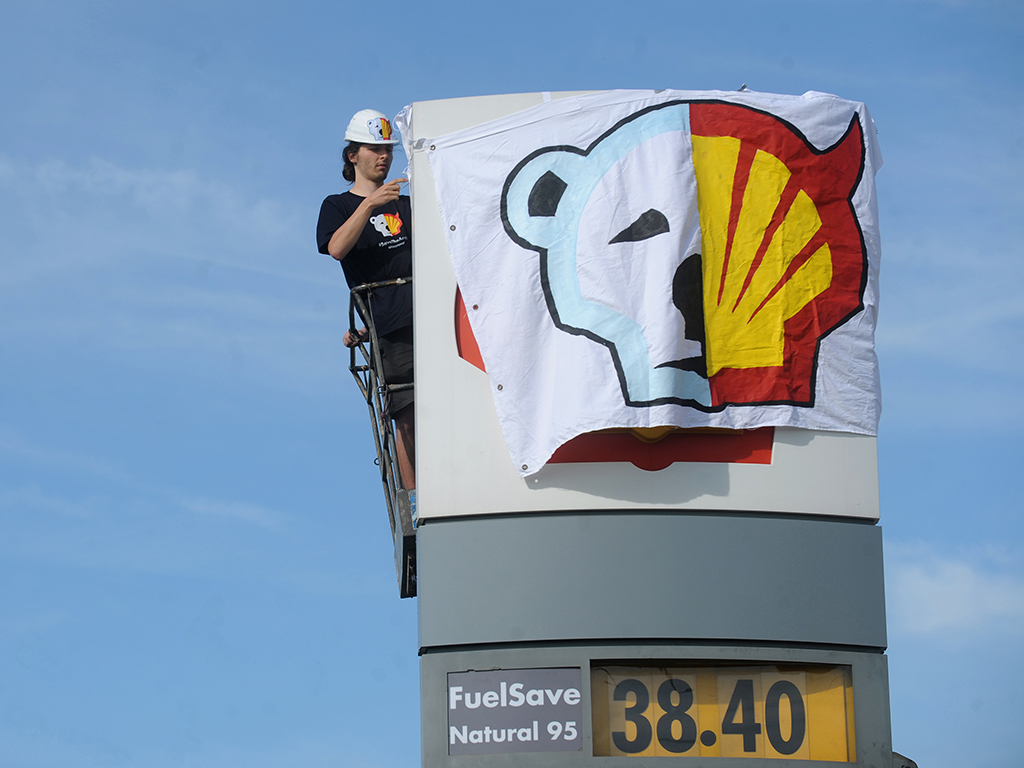Shell resumes Alaskan oil drilling
Three years after operations were suspended due to safety concerns, Shell has been given the go ahead to resume drilling

A Greenpeace activist protests against Shell drilling oil in Alaska. The group believes that arctic oil must remain in the ground in order to avoid catastrophic climate change
Anglo-Dutch oil producer Shell has been given permission to resume its off-shore arctic drilling operations by the US Bureau of Ocean Energy Management (BOEM). According to a press release, the decision came after a “comprehensive review and consideration of comments received from the public, stakeholders, and Federal [sic] and state partner agencies and tribes”. The oil giant was forced to suspend its arctic operations three years ago due to a series of potential accidents in the region.
Environmental groups have voiced concerns about the decision
The approved plan will see Shell drilling six wells in the Chukchi Sea, north of the Bering Strait. The wells will be approximately 140 feet deep under water and 70 miles off the coast of the Alaskan village of Wainwright.
Environmental groups have voiced concerns about the decision. “Instead of holding Shell accountable and moving the country towards a sustainable future, our federal regulators are catering to an ill-prepared company in a region that doesn’t tolerate cutting corners”, wrote a senior research specialist at Greenpeace, Tim Donaghy, in The Guardian. “Shell has a history of dangerous malfunctioning in the Arctic, while global scientists agree that Arctic oil must stay in the ground if we’re to avoid catastrophic climate change.”
The BOEM claims to have taken into account the necessary precautions in deciding to allow Shell’s operations. “We have taken a thoughtful approach to carefully considering potential exploration in the Chukchi Sea, recognising the significant environmental, social and ecological resources in the region, and establishing high standards for the protection of this critical ecosystem, our Arctic communities, and the subsistence needs and cultural traditions of Alaska Natives”, BOEM Director Abigail Ross Hopper said in the press release. “As we move forward, any offshore exploratory activities will continue to be subject to rigorous safety standards.”













